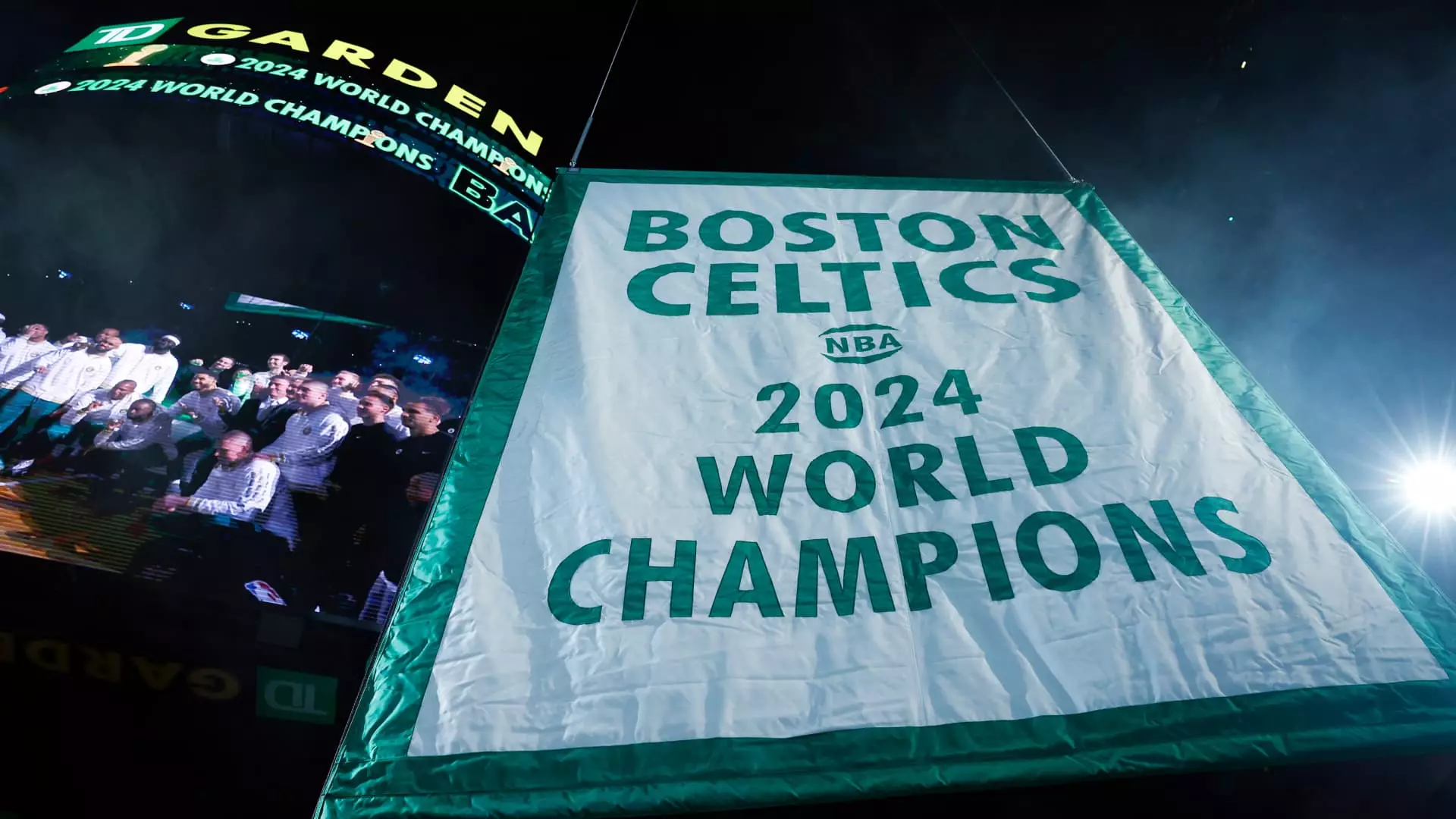The acquisition of the Boston Celtics by a private equity group led by Bill Chisholm marks a monumental moment in sports history, given that the franchise sold for an astounding $6.1 billion. This valuation isn’t just a record-setting price in the NBA but across all U.S. sports, beating the $6.05 billion paid for the NFL’s Washington Commanders. On its surface, this sale may appear to symbolize financial triumph—a marker of a franchise’s immense value—but beneath the glittering headlines lies an alarming trend that threatens the heart and soul of what sports should represent.
A team’s ownership should ideally reflect passion and commitment to community values. However, the encroachment of private equity firms into sports ownership brings a profit-centric philosophy that often undermines the essence of the game. Chisholm’s group, which includes high-profile investors like Bruce Beal Jr. of Related Companies, signifies a shift toward a financialized model of sports that prioritizes profit margins over player welfare and fan engagement.
The Price of Nostalgia
While Chisholm and his collaborators express their love for the Celtics, one can’t help but question whether their intentions extend beyond just a love for basketball. Chisholm states his lifelong passion for the team, emphasizing his understanding of how crucial the Celtics are to Boston. This appears disingenuous when considering that private equity firms primarily focus on lucrative returns rather than nurturing the cultural significance of a franchise.
Despite the emotional rhetoric surrounding the team’s sale, the reality is that profits dictate decision-making in private equity-driven enterprises. This creates a paradox: Can a franchise continue to embody the community spirit while being governed by interests that view a sports team as just another asset? This moment exemplifies how capitalism can corrupt deeply rooted traditions, transforming fans into mere consumers, and players into commodities.
Community & Culture at Risk
The Celtics have historically represented more than just a basketball team; they encapsulate Boston’s identity and community spirit. Their storied rivalry, legendary players, and an ingrained sense of loyalty speak to the heart of sports culture. With the sale, there comes a palpable concern: what will happen to the team’s cultural significance under the stewardship of investors focused primarily on maximizing revenue?
As valuations skyrocket, the financial stakes become perilous for local involvement. Local owners, with their intimate understanding of team dynamics and community engagement, are gradually being replaced by national syndicates whose allegiance lies to the bottom line. This transformation could lead to a disconnect with the very fanbase that has historically fueled the team’s success.
Transcending Through Partnerships
Chisholm has publicly indicated his awareness of this community responsibility. However, actions speak louder than words. Can he transform his financing model into a one that genuinely invests back into the community? Time will tell whether Chisholm’s engagement in Boston transcends promises made in press releases, or if it merely serves as a calculated public relations strategy.
Moreover, the influx of massive media rights deals—like the NBA’s recent staggering agreement worth $76 billion—might further detach the franchise from its local roots. The race for revenue could lead to decisions that prioritize high-profile player acquisitions and marketing over the development of homegrown talent, sidelining the city’s own basketball culture.
What Lies Ahead?
As the Celtics step into this new era under Chisholm’s leadership, fans are left to grapple with a host of uncertainties. They may question the legitimacy of the emotional investment they’ve made in a franchise that now sits on such shaky financial ground. Will the Celtics remain an icon of Boston pride, or will they succumb to the pressures of corporate interests?
In this pivotal moment, dignity in sports ownership may need champions who prioritize community involvement alongside fiscal responsibility. In the quest for winning, is it too much to ask that the team does not lose its soul along the way? One can only hope the Celtics retain the qualities that have endeared them to their fans, lest their storied legacy becomes just another chapter in an increasingly transactional sports landscape.


Leave a Reply